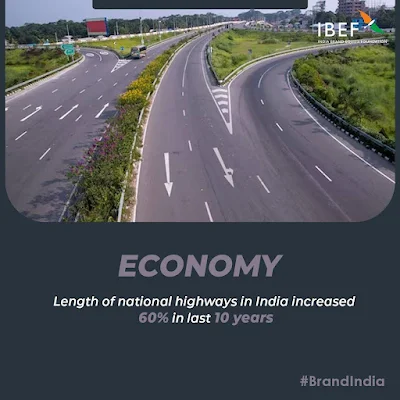The network of national highways in India stands as the backbone of the country's transportation system, playing a crucial role in propelling economic growth and regional development. The Ministry of Road Transport and Highways, recognizing the significance of a robust and efficient highway network, has been at the forefront of introducing innovative practices and technologies to revolutionize road transport in India. In this exploration, we delve into the key innovations that are shaping the future of India's national highways, focusing on sustainable development, technological integration, and enhanced connectivity.
Embracing Advanced Construction Techniques
The construction of highways in India is witnessing a paradigm shift with the adoption of modern techniques and materials. Innovations like precast concrete, geosynthetics for soil reinforcement, and cold mix technology for road construction are not only accelerating the pace of construction but also enhancing the durability and safety of the highways. The utilization of waste materials like fly ash and plastic in road construction is another commendable step toward environmental sustainability and resource optimization.
Digital Transformation in Highway Management
Digital technology is crucial in transforming the management of India's national highways. The implementation of Electronic Toll Collection (ETC) systems, such as FASTag, has streamlined toll operations, significantly reducing congestion and travel time. Additionally, the integration of Intelligent Transportation Systems (ITS) is enhancing traffic management, road safety, and emergency response services, thereby improving the overall efficiency of the highway network.
Focus on Green Highways
In alignment with global environmental concerns, the Ministry of Road Transport and Highways is prioritizing the development of green highways. This initiative encompasses the plantation of trees, the development of eco-friendly amenities, and the use of solar energy for lighting and other purposes along the highways. These efforts not only contribute to the aesthetic enhancement of the highways of India but also play a crucial role in reducing the carbon footprint of road transport.
Expanding Connectivity through Expressways and Corridors
The expansion of expressways and dedicated corridors is an aspect of the modernization of India's national highways. Projects like the Bharatmala Pariyojana, envisaged by the Ministry, aim to enhance connectivity between economic centers, remote areas, and international borders. The development of specialized corridors, such as industrial and logistics corridors, is set to boost economic activities and regional development.
Safety Measures and Standards
Safety on India highways is receiving heightened attention with the implementation of stringent safety standards and measures. Initiatives like crash barrier installation, better signage, and illumination are aimed at reducing accidents and ensuring safer travel. Regular audits and the adoption of global best practices in road safety are further contributing to the creation of a safer highway network in India.
Public-Private Partnerships (PPP) and Investment
Public-private partnerships (PPP) have emerged as a driver in the development and maintenance of national highways in India. This model of collaboration has not only accelerated infrastructure development but also ensure efficient management and sustainability of highway projects. The involvement of private players has also opened avenues for greater innovation and investment in the sector.
Leveraging GIS and Satellite Technology
Geographic Information Systems (GIS) and satellite technology are revolutionizing the planning and monitoring of highway projects. These technologies enable precise mapping, terrain analysis, and real-time monitoring, which greatly assist in the efficient planning and execution of highway projects. The use of satellite data is also instrumental in assessing environmental impacts and planning mitigation strategies.
Evolving with the Electric Vehicle (EV) Ecosystem
Recognizing the global shift towards electric vehicles, the highways of India are evolving to support this transformation. The establishment of EV charging stations along the highways is a step towards promoting the use of electric vehicles, thereby contributing to environmental sustainability and reducing dependence on fossil fuels.
Conclusion
The transformation of India's national highways network is a dynamic process driven by a blend of innovation, technology, and sustainable practices. As highlighted by the India Brand Equity Foundation, the continuous improvement and expansion of the highway network are pivotal in bolstering India's position as a global economic power. The Ministry of Road Transport and Highways, through its visionary initiatives, is ensuring that the highways of India not only meet current demands but are also prepared for future challenges and opportunities. The innovations shaping national highways in India today are laying the foundation for a more connected, efficient, and sustainable tomorrow, reflecting a promising future for road transport in India. As we progress, it is imperative to continue embracing new technologies and practices, ensuring that India's national highway network remains at the forefront of global infrastructure development.



No comments:
Post a Comment